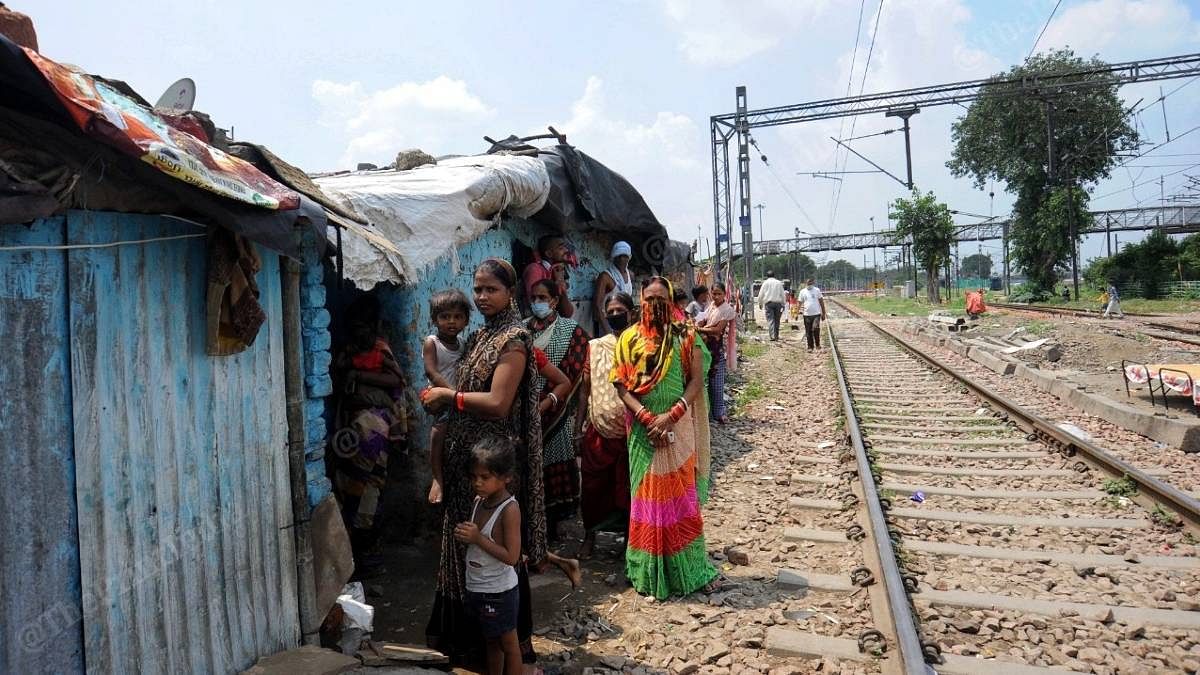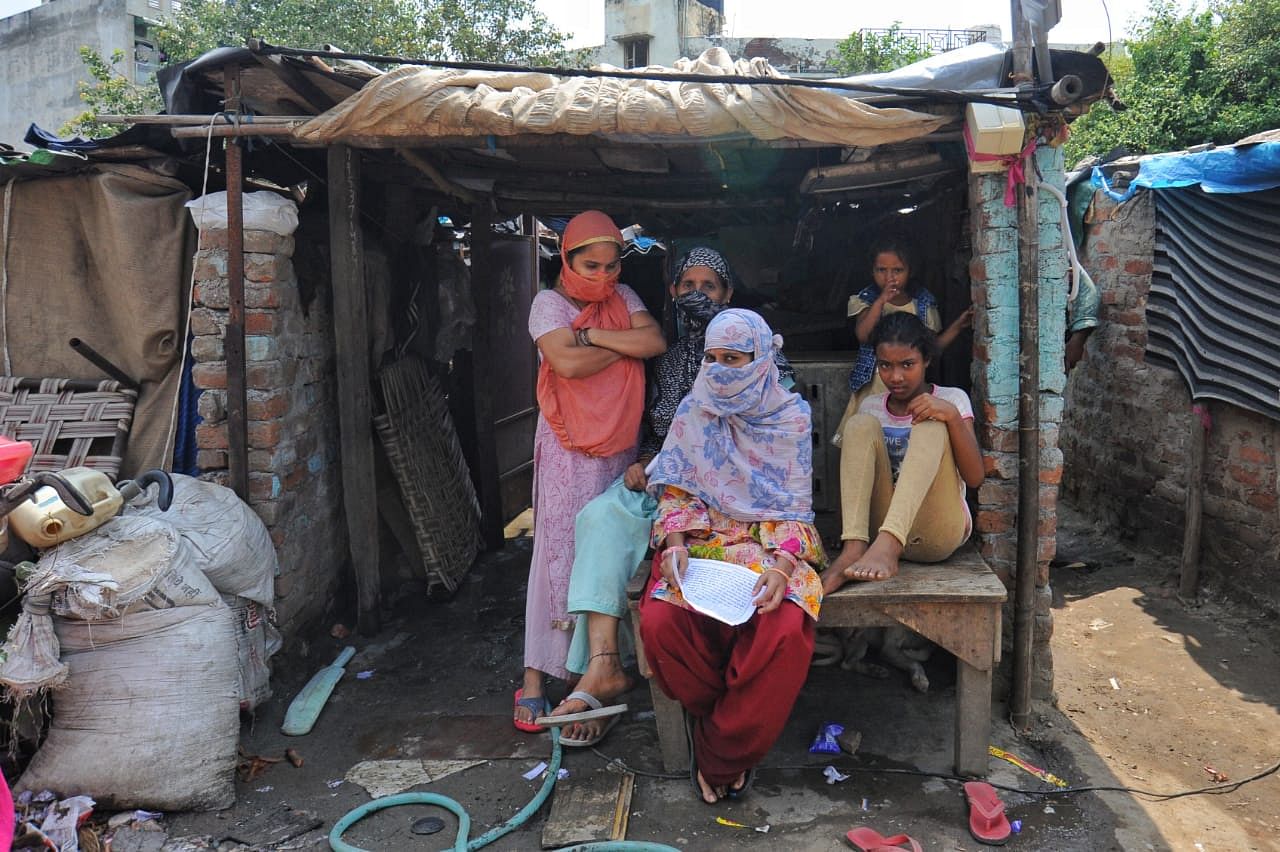
ThePrint
Supreme Court order on slums removal brings focus back on Delhi’s ‘jhuggi politics’
Both AAP and BJP had used the tagline, 'Jahan Jhuggi, Wahan Makaan', while campaigning for the 2015 assembly elections and the 2017 municipal elections in Delhi.
by Bismee TaskinNew Delhi: The Supreme Court judgment passed last week ordering the removal of close to 48,000 jhuggis along the 140 km length of the railway tracks in Delhi has once again brought the focus back on illegal slums in the national capital. Despite a slew of policy measures to stem their growth and the uncertainty surrounding its residents, slums have continued to grow across the city.
The apex court gave authorities three months to clear encroachments, but was silent on resettlement of slum dwellers. For their part, authorities are yet to come up with a roadmap to provide alternate resettlement to displaced slum dwellers.
The slum residents are faced with uncertainty now while experts say governments have never really figured such settlements in its urbanisation plans, which has led to the recurring problem of such illegal constructions and the resultant human cost.
However, a political slugfest is already festering.
On Friday, Congress leader Ajay Maken filed a petition in the top court against the order, emphasising that close to 2.4 lakh people will be rendered homeless. Maken also pointed out the affected slum dwellers or their representatives weren’t a party to the case.
A day earlier at a press conference, Aam Aadmi Party (AAP) spokesperson Raghav Chadha blamed the Centre for the Supreme Court’s decision, and said that “until Delhi Chief Minister Arvind Kejriwal is alive, no slum dweller in Delhi will be displaced”. He further claimed that the CM is making a fool-proof plan of action to ensure that no slum dwellers’ houses are demolished.
Delhi BJP chief Adesh Gupta Tuesday had demanded that slum dwellers be relocated by the Delhi government to the over 50,000 vacant housing units constructed under the Rajiv Ratan Awas Yojna by the Congress government under chief minister Sheila Dikshit.
Both the AAP and the BJP had used the tagline ‘Jahan Jhuggi, Wahan Makaan‘, while campaigning for the 2015 assembly elections and the 2017 municipal elections in Delhi.
Also read: Political parties battle each other in Indian slums by using rumours and violence
Wrecking ball
In its 31 August judgment, a Supreme Court bench led by Justice Arun Mishra said: “The encroachments which are there in the safety zones should be removed within a period of three months and no interference, political or otherwise, should be there, and no court shall grant any stay with respect to removal of the encroachments in the area in question.”
Following the order, anxiety has been growing among people living in these jhuggis as it remains uncertain where they can move to once their houses are demolished.

For 35-year-old Surami Devi, this is a repeat of events. The family of 10 had moved to the Sarai Rohilla slum area along the railway tracks six years ago when their home in a South Delhi slum was demolished.
The uncertainty was the underlying emotion across four jhuggis ThePrint visited in Sarai Rohilla, Azadpur, Old Seelampur and Nizamuddin. The top court order, coming at a time coronavirus has already wreaked havoc, feels like a double whammy to them.
A. Gangashram, a resident of the Nizamuddin slum, said they have been having “sleepless nights”. “We need a roof on our heads … the government must first rehouse us,” Gangashram said.
Despite the government’s assertions, the lack of any concrete plan about resettling slum dwellers has offered little comfort to them.
In 2019, Delhi Chief Minister Arvind Kejriwal had launched the Mukhyamantri Aawas Yojana, which has a similar in situ rehabilitation policy for slum dwellers under the Pradhan Mantri Awas Yojana (PMAY). This was done by renaming the Delhi Slum and JJ Rehabilitation and Relocation Policy, 2015, which was approved by the state government in 2016. Under this policy, jhuggis that have come up before 1 January 2006, cannot be demolished before residents are rehabilitated.
The policy is actually the renamed Delhi Slum and JJ Rehabilitation and Relocation Policy, 2015, which was approved by the state government and notified on 11 December 2017.
According to a 2019 survey, there are 275 slums and JJ that come under the Delhi government, Delhi Urban Shelter Improvement Board (DUSIB) member Bipin Rai told ThePrint. The DUSIB is responsible for providing temporary/night shelters for the homeless in Delhi.
Bureaucratic knot
According to the Delhi slum relocation policy, the DUSIB has to prepare for the rehabilitation of those in jhuggis on Delhi government land and its agencies.
However, since railway lands come under the central government, for which the Delhi Development Authority (DDA) is responsible, resettlement of those being displaced by the Supreme Court’s latest order falls to them.
The issue, in this case, is that the DDA isn’t a stakeholder or a party in the Supreme Court case. “The policy states that any other land owning agency can request DUSIB to conduct the rehabilitation process,” S.K. Mahajan, chief engineer, DUSIB told ThePrint.
Mahajan said DUSIB is now waiting for a proposal from the Railways asking it to conduct the relocation process.
“We have made it clear to the Railways that they have to request us now with a proposal to help clear the jhuggis for them as per the SC order and some relocation charges have to be paid by the land owning agency as per policy,” Mahajan said.
Only once the proposal gets approved, will DUSIB begin a survey of the slum locations, check eligibility criteria of dwellers, and conduct document verification. The beneficiary will have to pay around Rs 1,12,000 to receive the formal letter from DUSIB in order to take possession of the allotted flat. In this case, the beneficiaries would be the slum dwellers.
The state government has written to the Northern Railways that demolishing jhuggis would be “illegal” without rehabilitating its residents first. The Railways have also been informed that to shift people from jhuggis to apartments, DUSIB will need to be paid between Rs 7.55 lakh and Rs 11.30 lakh per flat.
Mahajan said the houses built for slum relocation can be made “ready to move in” earliest by March next year. At present, there are 29,257 of these houses that can be made available across 11 localities.
ThePrint reached Northern Railways chief public relation officer, Deepak Kumar, through calls and messages, who declined to comment.
‘Govts have not thought of slum dwellers’
The top court’s order was passed in the M.C. Mehta Vs Union of India case, better known as the Delhi vehicular pollution case of 1985, relating to Delhi pollution matters in which the Supreme Court has been passing a slew of directions from time to time since 1985.
Mehta, a lawyer known for his campaigns on issues concerning the protection of the environment and air pollution, told ThePrint that governments are responsible for the problem of illegal encroachments in the national capital and not coming up with timely relocation plans for the jhuggi residents.
“It is the government and the civic bodies responsibility to not allow these illegal encroachments. The governments, who so ever are in or were in power should have never allowed this sort of illegality to take place and instead found a solution when they began,” he said.

Referring to the MC Mehta vs Union of India case, in which the top court laid down the principle of ‘absolute liability’, he added, “The MC Mehta case is from 1986, however even though the highest court of order had passed it, the governments don’t seem to function in compliance with the law. This has been going on and on since then.”
He added that the governments and the concerned authorities must remember that the slum dwellers should be given as much respect as any other citizen and a relocation plan should be formulated soon.
Prof Amitabh Kundu, an urban sector expert who has worked extensively on the issue of slums, said these citizens have not been a priority for governments as urbanisation has been “exclusionary”.
“The SC order has come in response to the health and hygiene issue in the city. Staying in jhuggis along the railway tracks is even hazardous for the slum dwellers. However, slum upgradation has never been a priority for the governments … we are busy building homes for the middle class and feeding their vested interests,” Prof Kundu said.
Also read: Indian elites holding back wealth tied in slums. And here’s what Modi govt can do